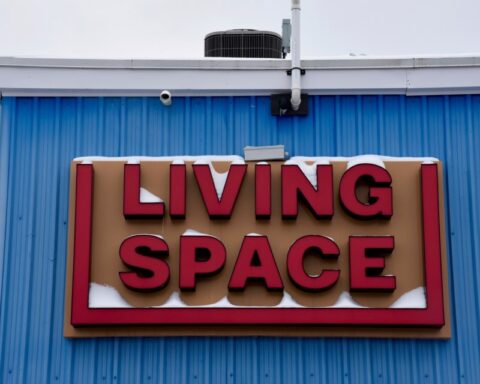Canada’s Indigenous people are asking immigrants to join the nationwide process of reconciliation by learning about and celebrating Indigenous culture.
One of the many recommendations that the Truth and Reconciliation Commission (TRC) published in their final report calls on the government to incorporate more information on the history of Canada’s diverse Indigenous communities in information kits for newcomers and in citizenship tests.
This includes information on residential schools and the Treaties through which settlers dispossessed the Indigenous peoples of their land.
The recommendation is just one of 94 outlined in the report from the TRC, whose work on restoring the relationship between the Canadian government and Indigenous communities culminated with the report’s delivery on Dec. 15, 2015.
https://www.youtube.com/watch?v=mZoLgdzrw7c%5B
Learning the true history of Canada
“I really think it’s important to realize that this was not an empty land when people came here. There were thriving nations in this land,” says Jane Hubbard, acting director of operations of the Legacy of Hope Foundation.
Her organization works to raise awareness about the history of residential schools in Canada and to promote reconciliation among Aboriginal and non-Aboriginal people in Canada.
“I think it’s very important that the true history be told, so that people understand that Canada did not start in 1867. There was a long history before contact as well,” she says.
Hubbard says Aboriginal peoples’ present-day contributions to society should also be included and celebrated.
“Often in a lot of government materials, Aboriginal peoples are referred to in such a way as to make someone think that perhaps they are a historical entity,” she says.
It is vital that newcomers do independent research to learn about Indigenous culture, instead of absorbing the misinterpretations of the general narrative.
“We would like to see more of the current-day representation. Thriving cultures, restoration of language. That people are here and walking amongst us and that they are lively contributors to society.”
Andrew Tataj is a second-generation Canadian whose parents came to Canada in the 1970s from Ireland and former Yugoslavia. “Learning about our history is important, because it can help newcomers assimilate into our culture, especially knowing about the country’s past – good and bad things,” says the computer engineer.
However, he is skeptical about the positive effect of providing more information. “I don’t think much can be changed when it comes to awareness. … It won’t get their land back,” he says.
Participating in reconciliation
Heather Igloliorte, an Inuit professor and chair in Indigenous art history and community engagement at Concordia University, outlines some ways in which newcomers can participate actively in the process of reconciliation.
“I think that one of the things that new Canadians could do is attend festivals and celebrations and Aboriginal peoples’ day and other events, so that they have an opportunity to meet and converse with Indigenous people. So that their understanding does not come only from literature, but also from first-person experience,” she says.
One of the primary focuses of the TRC was to expose the truths of the residential-school system.
Igloliorte says that it is vital that newcomers do independent research to learn about Indigenous culture, instead of absorbing the misinterpretations of the general narrative about them.
“It’s incredibly important for newcomers to Canada to understand the history of how we got to where we are today, so that they do not simply absorb the stereotypes and the racist perspectives towards Indigenous people that we still have in Canada right now,” says Igloliorte.
“I think Aboriginal people did not receive enough respect from the very beginning,” says Khaled Elrodesly, a biomedical engineer from Egypt who recently took his citizenship test. “They are supposed to be the first settlers of the Americas and everyone else that comes after them should respect their thoughts and ideas and try to connect with them.”
“A turning point”
One of the primary focuses of the TRC was to expose the truths of the residential-school system, which existed for over 100 years.
This system took First Nations, Inuit and Métis youth from their parents, often forcibly, to eradicate their culture and instill a Christian-European one through a process of assimilation that many have described as “cultural genocide.”
“I remain hopeful that this country right now is at a turning point…”
Garnet Angeconeb is one of the survivors of this system.
Now in his 60s, he recalls the six formative years of his youth from age seven to 12, which he spent in a residential school in Sioux Lookout in northwestern Ontario. He says that despite the state’s efforts to erase his culture, he never lost it completely.
“Even though I went to residential school, there was always something there that I knew that was put on the shelf for a while. So it was through my own curiosity, through my own pride as an Aboriginal person that I wanted to take that knowledge, that experience, my culture, off the shelf and live it again,” he says.
Throughout his life, Angeconeb began reclaiming his cultural heritage and his identity became clearer as he grew older.
“I never lost it, but I never used it,” he says. “But now it’s my chance, and I am going to share it with my children and with my grandchildren.”
Angeconeb is hopeful about the future of reconciliation. “I really have a strong heart and I am a very strong believer in resilience – that our people have the ability to bounce back, no matter how dark this chapter of our history is.”
He says Indigenous pride and culture in Canada are very much alive.
“People are reclaiming their languages, their cultures … There is healing in that, and I think we need to celebrate our survival in many ways. I remain hopeful that this country right now is at a turning point in terms of improving and acknowledging a positive relation with the Indigenous community.”




